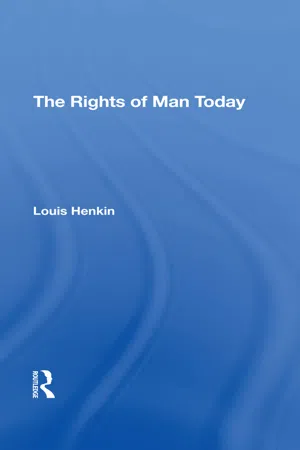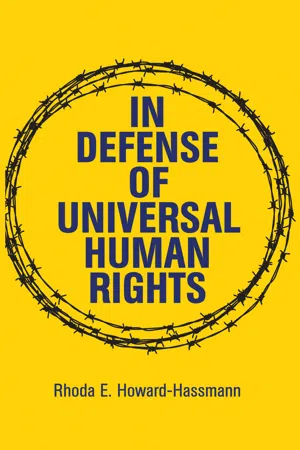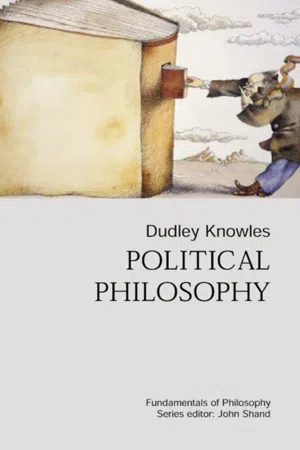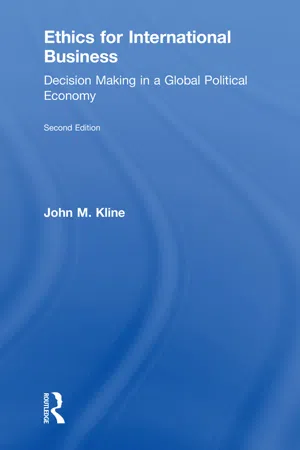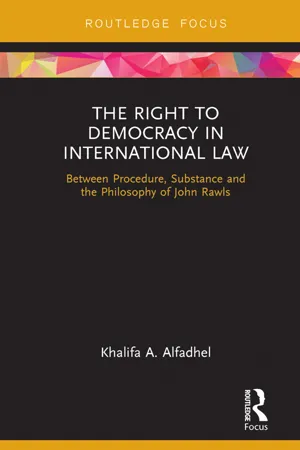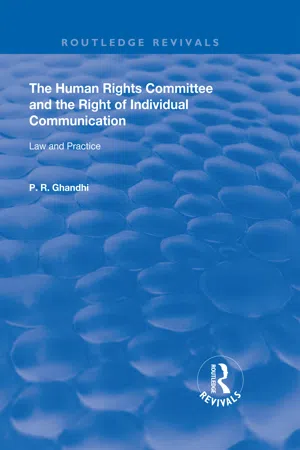Individual Rights in the Constitution
Individual rights in the Constitution refer to the fundamental liberties and protections guaranteed to individuals by the Constitution. These rights include freedom of speech, religion, and assembly, as well as protections against unreasonable searches and seizures, and the right to due process. The Constitution serves as a safeguard for individual rights and ensures that the government respects and upholds these rights.
6 Key excerpts on "Individual Rights in the Constitution"
- eBook - ePub
- Louis Henkin(Author)
- 2019(Publication Date)
- Routledge(Publisher)
...Two Constitutions and Human Rights Human rights are now established in conception and principle and are national and international law for many nations. There is common agreement that every individual has both political-civil and economic-social claims upon his society. But in a world of nation-states, the strength of commitment to human rights and the extent to which it is realized depend on the particular state and its institutions; the condition of human rights thus differs markedly in different societies. Some states, and some groupings of states, are identified by differing ideologies connoting different conceptions and commitments to human rights. These differences are reflected or signaled in large measure in national constitutions. Constitutions, to be sure, are at best promises, and constitutional promises often remain unfulfilled. But what a constitution promises tells us, at least, what a society pretends or aspires to, where individual rights stand in its political system and scale of values, and much about how rights fare in fact. In the American conception, a constitution is an instrument that “constitutes” a government and prescribes the blueprint for that government, as the sovereign people of the United States ordained the Constitution of the United States constituting the government described therein. (“The British Constitution” is not in one document but refers to the system of government constituted by historic development and by several acts and documents emanating from recognized authority.) Because it was assumed—especially under theories of popular sovereignty—that the government constituted would be limited, because the U.S. and other constitutions in fact imposed limitations on government, a constitution (and “constitutionalism”) came to imply limited government...
- eBook - ePub
- Rhoda E. Howard-Hassmann(Author)
- 2018(Publication Date)
- Polity(Publisher)
...Privacy rights are important components of personal autonomy. They are also an aspect of societal respect: individuals and families are entitled to a zone of privacy where they can be on their own or with each other without intrusion by state authorities. Contrast this to communist or collectivist societies where the state organizes neighborhood spying systems and where every aspect of one's life is known to the state, as in the Soviet Union and China. In contemporary times, datamining constitutes a similar threat, as does the state's often illegal monitoring of supposedly private online communications in the interests of national security. While privacy is intrinsically necessary to human dignity, one might be tempted to argue against the intrinsic necessity of mobility rights, protected by the ICCPR (Article 12(1)): “Everyone lawfully within the territory of a State shall, within that territory, have the right to liberty of movement.” Perhaps mobility rights have only a strategic value, permitting individuals to move about the country in search of employment or better living conditions. Yet a society in which mobility rights are restricted is one in which family members cannot visit each other or even live together, as in South Africa under apartheid. Nor can communities of faith or ethnicity keep in touch if, dispersed around a state, they cannot congregate when and where they wish to. Critics of civil and political rights often claim that they are overly individualistic and undermine community. Communities, however, are not only those of ethnicity, faith, or ancestry. The modern state is – or should be – a political community. Human dignity requires that the individual can partake in that community's deliberations and decision-making, that she is a subject, not merely an object, of public policies that affect not only her material but also her social well-being...
- eBook - ePub
- Dudley Knowles(Author)
- 2006(Publication Date)
- Routledge(Publisher)
...Chapter 4 Rights Introduction Nowadays the rhetoric of human rights seems to be just about universal. No tyrants, no autocracy, seem to be so benighted that they refuse, in public at least, to endorse the claims of human rights. In practice they may jail or torture political opponents, or refuse to educate women, but when applying for aid to the United Nations they will give solemn assurances that human rights are respected in their jurisdiction, respected at least as far as is practical under conditions of emergency, respected at least in point of intent: that when the current crisis has been alleviated, normal conditions will be swiftly resumed. ‘Normal conditions’, of course, will comprise the promotion and protection of a standard list of human rights. The ‘standard list’ is likely to be provided by the United Nations Universal Declaration of Human Rights or the European Convention for the Protection of Human Rights. If any political principles have been elevated to the pantheon of political correctness, to the point where denial of them taints the innocent philosophical sceptic, human rights have. This makes it all the more important that we examine their philosophical credentials. Human rights have acquired a quite unique standing amongst political values, partly as a consequence of this official international recognition. Initially, they could be easily listed – rights to life, liberty and property. In the American Declaration of Independence, ‘the Pursuit of Happiness’ was included; The Rights of Man as declared by the French Revolutionary Assembly incorporated rights to liberty, property, security and resistance to oppression. In the United Nations Charter and the European Convention, the so-called social and economic rights have been included, rights to health, education, welfare provision and much else...
- eBook - ePub
Ethics for International Business
Decision-Making in a Global Political Economy
- John Kline(Author)
- 2010(Publication Date)
- Routledge(Publisher)
...In 1776, our government became the first specifically created to preserve human rights; our Declaration of Independence even speaks of “certain unalienable rights” with which all people are “endowed by their Creator.” Such rights cannot be granted by any government; rather they are “unalienable” because, based on “the laws of nature,” they belong to everyone. Because human rights have always been inseparable from American identity, it follows that a human rights policy is more than just an appendage to our foreign policy. Our humane traditions separate us from those who deny human rights and embody America’s attraction to people all over the world. Unfortunately, this intention to secure rights everywhere does not translate itself easily into an effective human rights policy. Devising a policy that works well is a complex matter. Definition of human rights. The US Government recognizes two categories of human rights. First, all individuals should be free from violations of the “integrity of the person,” such as political killings, torture, cruel treatment or punishment, arbitrary arrest or imprisonment, denial of fair public trial, or arbitrary interference in personal life. Second, the government recognizes a group of political and civil rights, encompassing freedom of religion, speech, and press; freedom of association, including the right to form free trade unions; freedom of movement both within and outside national borders; freedom from discrimination on grounds of race and sex; and the right of citizens to change their government. The additional concept of “economic, social, and cultural rights,” as it has evolved over the last twenty-five years, includes such desirable ends as the “right to economic development,” the “right to employment,” and “the right to health care.” Considerable American foreign aid efforts have been activated by the moral imperative to eliminate starvation, poverty, and disease from the world...
- eBook - ePub
The Right to Democracy in International Law
Between Procedure, Substance and the Philosophy of John Rawls
- Khalifa A Alfadhel(Author)
- 2016(Publication Date)
- Routledge(Publisher)
...Hence, the limitations provided in the context of the procedural understanding provide a very basic minimalist view that can only be seen as an element in the right to democracy in international law, but not the whole picture. Therefore, the discussion must extend to assess the substantive element of the right to democracy through evaluating other sources of international law that have developed beyond ideological considerations and conceptual limitations. Notes 1 See P Ghandi, The Human Rights Committee and the Right of Individual Communication: Law and Practice (Ashgate 1998) 3; J Rehman, International Human Rights Law (2nd edn, Longman 2010) 86. 2 See V Pechota, ‘The Development of the Covenant on Civil and Political Rights’ in L Henkin (ed.), The International Bill of Rights: The Covenant on Civil and Political Rights (Colombia University Press 1981) 32–71. 3 International Covenant on Civil and Political Rights (adopted 16 December 1966. Entered into force 3 January 1976) UNGA Res 2200A (XXI) UN Doc A/6316 999 UNTS 171; (1967) 6 ILM 368 (hereinafter ICCPR). 4 For more, see generally L Henkin (ed.), The International Bill of Rights: The Covenant on Civil and Political Rights (Colombia University Press 1981); D McGoldrick, The Human Rights Committee: Its Role in the Development of the International Covenant on Civil and Political Rights (Clarendon Press 1994); M Nowak, UN Covenant on Civil and Political Rights: CCPR Commentary (2nd revised edn, NP Engel 2005); HJ Steiner, P Alston and R Goodman, International Human Rights in Context: Law, Politics, Morals (3rd edn, Oxford University Press 2008) 151–224. 5 Steiner (n 4) 152. 6 Article 17 of the UDHR provides: ‘(1) Everyone has the right to own property alone as well as in association with others...
- eBook - ePub
- P. R. Ghandhi(Author)
- 2019(Publication Date)
- Routledge(Publisher)
...The International Covenant on Civil and Political Rights (1966) PREAMBLE The States Parties to the Present Covenant, Considering that, in accordance with the principles proclaimed in the Charter of the United Nations, recognition of the inherent dignity and of the equal and inalienable rights of all members of the human family is the foundation of freedom, justice and peace in the world, Recognising that these rights derive from the inherent dignity of the human person, Recognising that, in accordance with the Universal Declaration of Human Rights, the ideal of free human beings enjoying civil and political freedom and freedom from fear and want can only be achieved if conditions are created whereby everyone may enjoy his civil and political rights, as well as his economic, social and cultural rights, Considering the obligation of States under the Charter of the United Nations to promote universal respect for, and observance of, human rights and freedoms, Realising that the individual, having duties to other individuals and to the community to which he belongs, is under a responsibility to strive for the promotion and observance of the rights recognised in the present Covenant, Agree upon the following articles: PART I Article 1 All peoples have the right of self-determination. By virtue of that right they freely determine their political status and freely pursue their economic, social and cultural development. All peoples may, for their own ends, freely dispose of their natural wealth and resources without prejudice to any obligations arising out of international economic co-operation, based upon the principle of mutual benefit, and international law...
